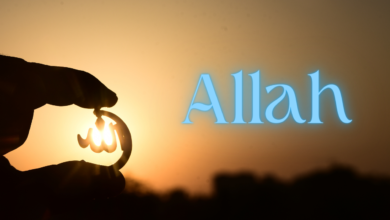The Importance of Reciting Surah Fajr in Daily Prayers

Introduction:
Surah Fajr is the 89th chapter of the Holy Quran and holds a special significance among Muslims for its powerful message and divine blessings. This Surah is recited during the Fajr (pre-dawn) prayer, which is one of the five obligatory prayers in Islam. The act of reciting Surah Fajr in daily prayers holds immense importance, not only in terms of spiritual rewards but also in shaping a believer’s character and mindset. Let us delve into the significance of reciting Surah Fajr and understand why it holds a unique place in a Muslim’s daily life.
Blessings of Starting the Day Early:
Surah Fajr is recited during the first prayer of the day, Fajr, which takes place before sunrise. This act of waking up early and beginning the day with prayer demonstrates discipline, dedication, and submission to Allah. By doing so, a Muslim acknowledges the importance of starting the day in alignment with the divine will, seeking blessings and guidance from Allah for the day ahead.
Reminder of the Day of Judgment:
Surah Fajr serves as a stark reminder of the Day of Judgment, a day when all souls will be held accountable for their deeds. The Surah describes the punishment that befell the people of ‘Ad, Thamud, and Pharaoh due to their transgressions and arrogance. By reflecting on these historical events, believers are encouraged to be mindful of their actions, avoid sinful behavior, and strive for righteous conduct.
Gratitude for Blessings:
This Surah also emphasizes Allah’s bountiful blessings upon humanity. From the serenity of the dawn to the ten nights mentioned in the Surah (possibly referring to the last ten days of Ramadan), believers are reminded to be grateful for the countless blessings bestowed upon them. Expressing gratitude through daily prayers fosters a positive and contented mindset, as Muslims are encouraged to focus on the good in their lives rather than dwelling on hardships.
Encouragement to Strive and Persevere:
The mention of the “witness” and the “oath” in Surah Fajr symbolizes the importance of witnessing truth and remaining steadfast in the face of challenges. It encourages believers to stand up for justice, uphold moral values, and persevere in times of difficulty. This lesson is particularly significant in today’s world, where maintaining one’s faith and values can sometimes be challenging.
Seeking Forgiveness:
Surah Fajr is a profound plea for Allah’s forgiveness, as indicated in the verse: “So, is your Lord, full of forgiveness for the people, despite their wrongdoing while they are unaware.” (Quran 89:14) By acknowledging their shortcomings and seeking forgiveness in daily prayers, Muslims aim to purify their hearts and seek redemption.
Strengthening Faith:
Reciting Surah Fajr regularly instills a sense of spirituality and strengthens one’s faith. The recitation of the Quranic verses creates a profound connection with Allah, providing solace, and tranquility to the believers’ hearts. This connection is essential for maintaining a balanced and purposeful life, especially amidst the challenges and distractions of the modern world.
A Source of Hope and Comfort:
Life is full of ups and downs, and sometimes, people may feel overwhelmed by hardships or uncertainties. Surah Fajr offers a message of hope and comfort, assuring believers that Allah’s mercy is ever-present. It reminds them to seek Allah’s help during difficult times and trust in His divine plan.
In conclusion,
reciting Surah Fajr in daily prayers is not merely a ritual but a profound spiritual experience with numerous benefits. It encourages believers to start their day with devotion and discipline, be grateful for blessings, seek forgiveness, and remain steadfast in their faith. The lessons derived from this chapter shape a Muslim’s character, fostering qualities of humility, perseverance, and gratitude. By reciting Surah Fajr regularly, Muslims can strengthen their relationship with Allah, find solace in His words, and lead a purposeful and fulfilling life.






